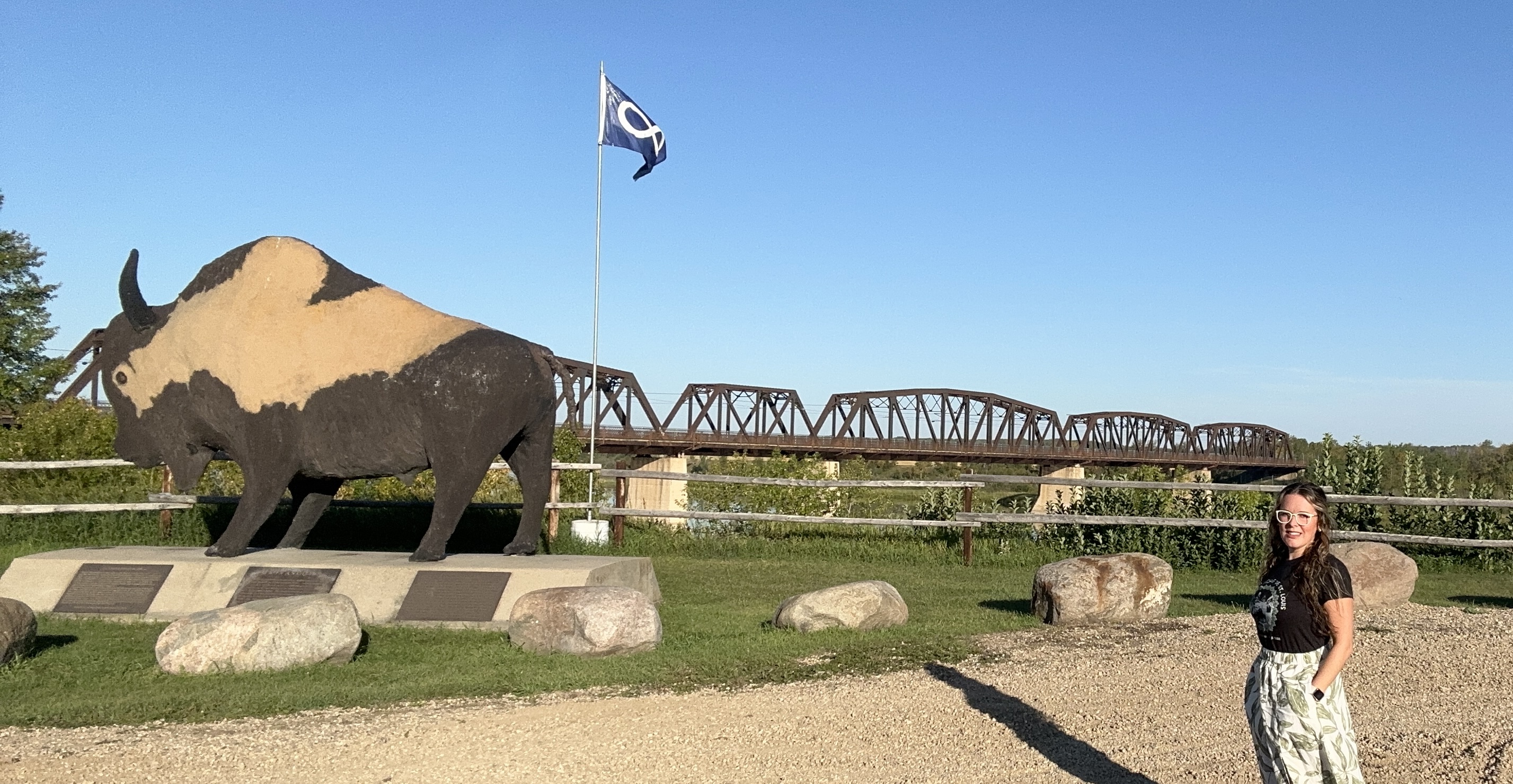
Empowering Change: Angela Rancourt's Journey in the Indigenous Education Doctorate Program
Angela Rancourt is a Michif woman, mother, sister, aunty, and educator from St. Louis, Saskatchewan. Her Red River kinship ties include the families of Lespérance, Lavallée, Boucher, Bremner, Lepine, and Morrison. Her ancestors settled in the St. Louis area around 1882. She was raised in the Métis community of St. Louis, where she attended school and aspired to be a teacher. SUNTEP (Saskatchewan Urban Native Teachers Education Program) at the University of Saskatchewan allowed her to delve deeper into her Métis histories and traditions, which had a profound impact on her as both an educator and a Métis woman. She is a part of the River Women Collective, and is committed to the wellness of families, communities, traditional languages, the land and river. Her work is guided by the Elders and shared with the youth.
Angela has been teaching for 15 years across all grade levels from Pre-Kindergarten to Grade 12. She completed her Master of Education in Curriculum and Instruction in 2019, with the University of Regina and the Gabriel Dumont Institute in a course-based program. She has been involved in community-engaged research since 2017. In 2019, she received the Experiential Internship Opportunity (Stipend Award) from the Alberta Indigenous Mentorship in Health Innovation Network at the University of Calgary, guided by Dr. Janice Cindy Gaudet. Currently, her work focuses on revitalizing the traditional language of her family and community, Michif French, through education. Her studies in the Doctorate of Indigenous Education program align with her work in schools and the community, actualizing the resurgence of the traditional Michif French language.

Urgency to work toward revitalization
Angela holds multiple roles within the Saskatchewan Rivers School Division, specifically in St. Louis. As a Michif Early Learning Program Coordinator, she connects Elders in the community with young learners, focusing on language and cultural revitalization. She is a facilitator of the Following Their Voices (FTV) initiative, which aims to increase graduation rates for Indigenous students. In this capacity, she works with teachers, observes and models classroom practices, and fosters understanding of Indigenous pedagogies. As a Michif French high school teacher, Angela, along with community members and Elders, custom-designed the 10, 20, and 30 level Michif French high school curriculum.
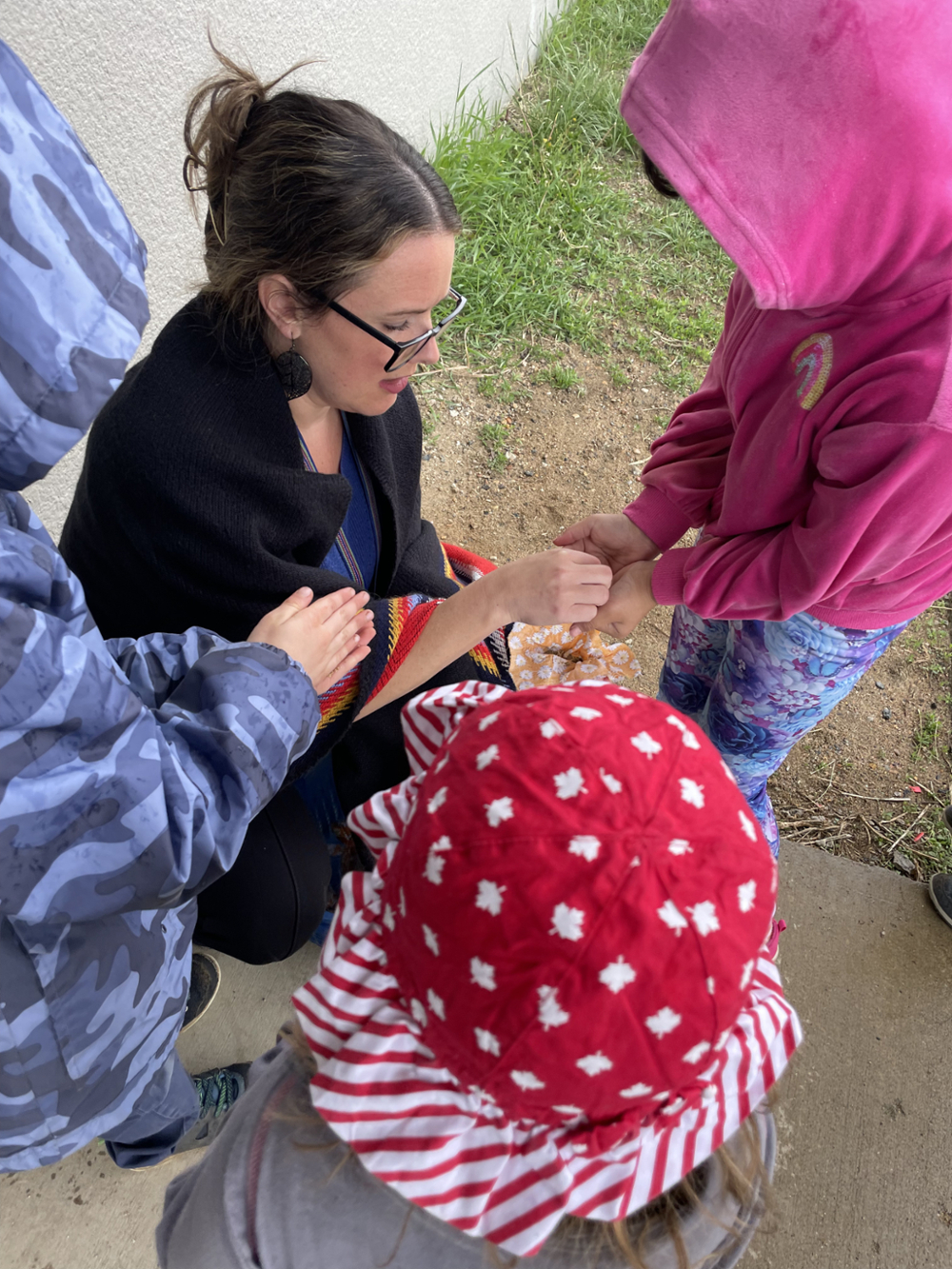
“Because we check the boxes of being Indigenous, educated, and woman, and there are very few of us, we have to take on multiple roles,” Angela reflects.
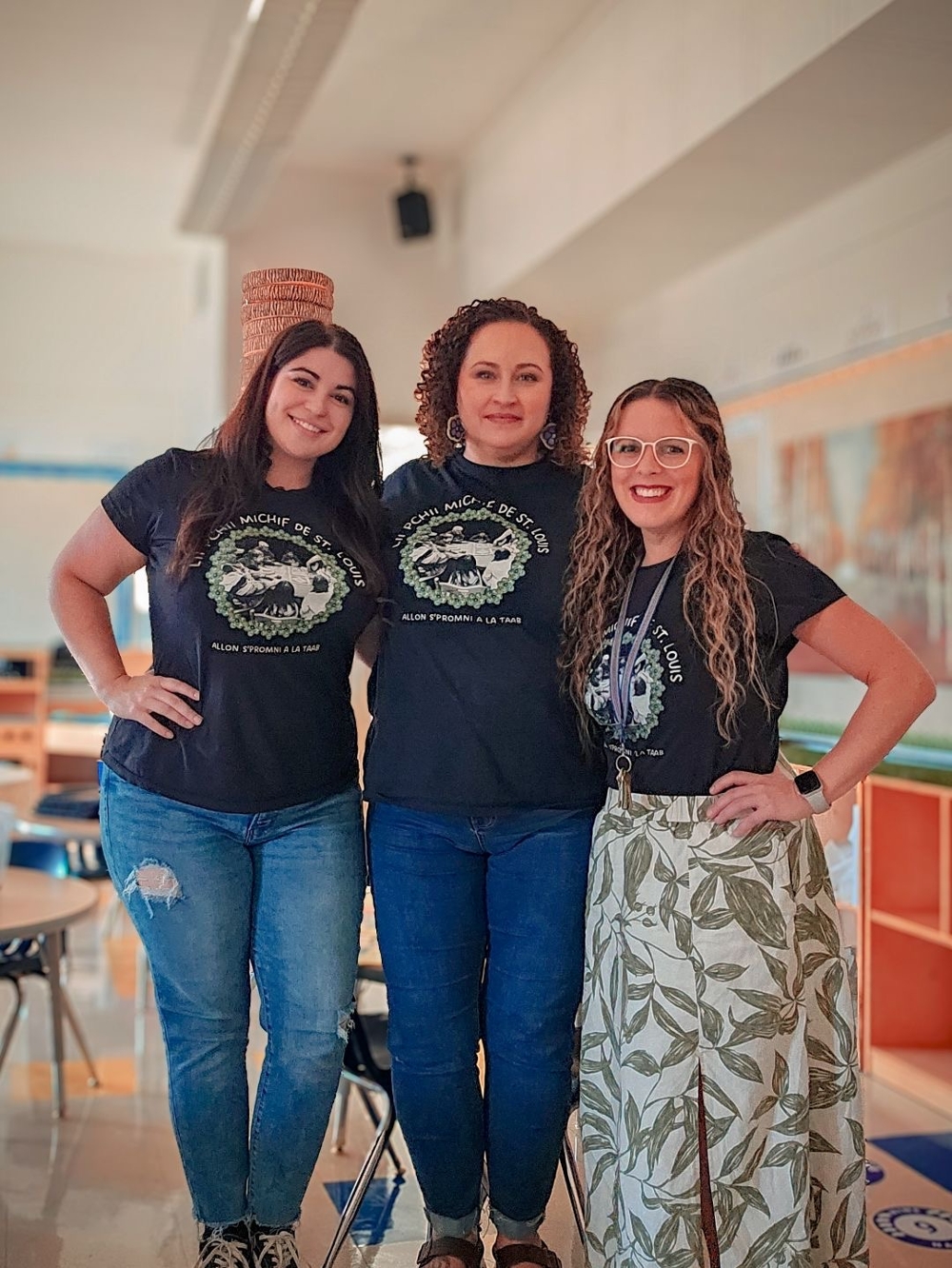
“I have this sense of urgency in terms of revitalizing our language, and I am only at the halfway point in my career, but I also realize how quickly that 15 years has gone,” Angela shares.
The late Michif Matriarch, Sophie McDougall, reminded Angela to be patient, that this kind of change will not happen overnight. “She never thought she would see a day in her lifetime when our traditional language was being spoken and taught in schools,” Angela shares.
Continuing her academic journey while prioritizing community work
“Since 2005, I have trusted GDI with every step of my academic journey, and there is no other institution I would rely on for my doctoral studies. GDI is a distinct Métis-specific institution that honors and practices core Métis values, creating an environment where students feel comfortable, safe, and respected.” - Angela Rancourt,
Deciding to pursue a three-year doctorate program is not a decision to be taken lightly. It requires a significant time commitment. Balancing coursework, research, and personal responsibilities demands careful planning and dedication.
“I was not in a position where I could move to a different city to do a Ph.D. I didn't have that flexibility. The reality is that I knew that I needed to be here to do what needed to be done. Whether that meant earning a Ph.D. or not, I needed to be here,” says Angela. “I have always admired my parents' strong work ethic and unwavering commitment to our community, and I aspire to support and serve our people, land, relationships, and languages in a similar way. These inspirations are key reasons for my decision,” she adds.
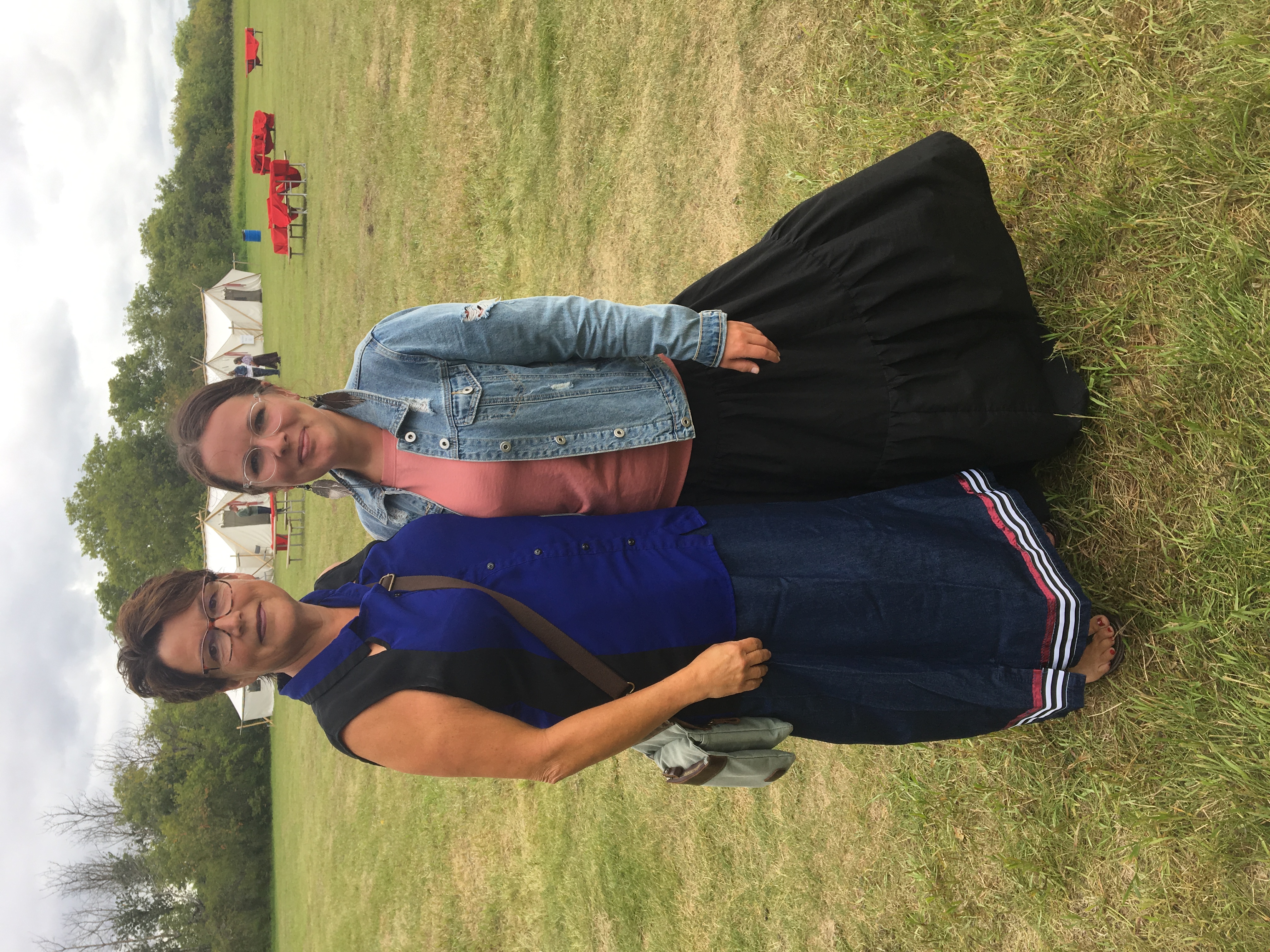
The design of the program allows Angela to balance her academic journey and commitment to community work. Over the course of three years, Angela will take eight courses. Three of the eight summer courses will be face-to-face, and land based. The other five courses will be offered online in the fall and winter.
Furthermore, GDI has always been a part of her academic career. It reflects the values, traditions, and expectations that she carries.
“Since 2005, I have trusted GDI with every step of my academic journey, and there is no other institution I would rely on for my doctoral studies. GDI is a distinct Métis-specific institution that honours and practices core Métis values, creating an environment where students feel comfortable, safe, and respected.” - Angela Rancourt
Each semester, students in the Indigenous Education Doctorate program will take a three-credit hour course plus a one-credit hour thesis component. Angela expects it to become more challenging as she gets deeper into her research and prepares for her dissertation. “I am grateful for my supervisor, Dr. Jennifer MacDonald, as she guides me in my thinking and thoughtfully challenges my end goal in this program,” she says.
Angela is optimistic about managing both commitments for now, “The program is structured to ensure that my academic work aligns with my practice, allowing me to integrate my work, such as the language program, into my research,” she says.
Strong ties to Métis local knowledge
As one of the few programs in Canada offering advanced degrees through an Indigenous lens, the Indigenous Education Doctorate program uniquely emphasizes the Métis perspective. It emphasizes Indigenous teaching and methodology, knowledge, leadership, land-based learning, and incorporates working alongside community members and teaching from Elders.
Since 2017, Angela has been fortunate enough to work with the Elders and Language Keepers in her community and has acted as a vessel between the Old Ones and the youth to transmit language, cultural knowledge, and reconnect the young and the old in the ways that her ancestors would have.
Learning in and with community is deeply enriching for generations and it goes beyond the classroom of a school system. From this, an intergenerational kinship network evolved which has been vital in developing wholesome language-speaker connections.
“We continue the journey with essential generations of knowledge holders who live the values embedded in the language,” says Angela. “It all started at the kitchen table with Elders and Language Keepers, Doris McDougall, Marlene Vandale, Mataant, and Dr, Janice Cindy Gaudet. Two of our Michif Matriarchs, Marlene Vandale and her sister, Evelyn Richard passed on too soon. We are reminded how precious our time is with our Elders. These Michif warriors are some of the ones who inspired and encouraged the other speakers in the community to speak their mother tongue with great pride. Marlene’s husband, Elder Sonny Vandale, and his sister, Elder Phyllis Vermette, have since become family. They have continued to support and guide us, and myself, in our Michif journey. Without the continued support of Doris, Sonny, and Phyllis, the resurgence of our language efforts would not exist.”
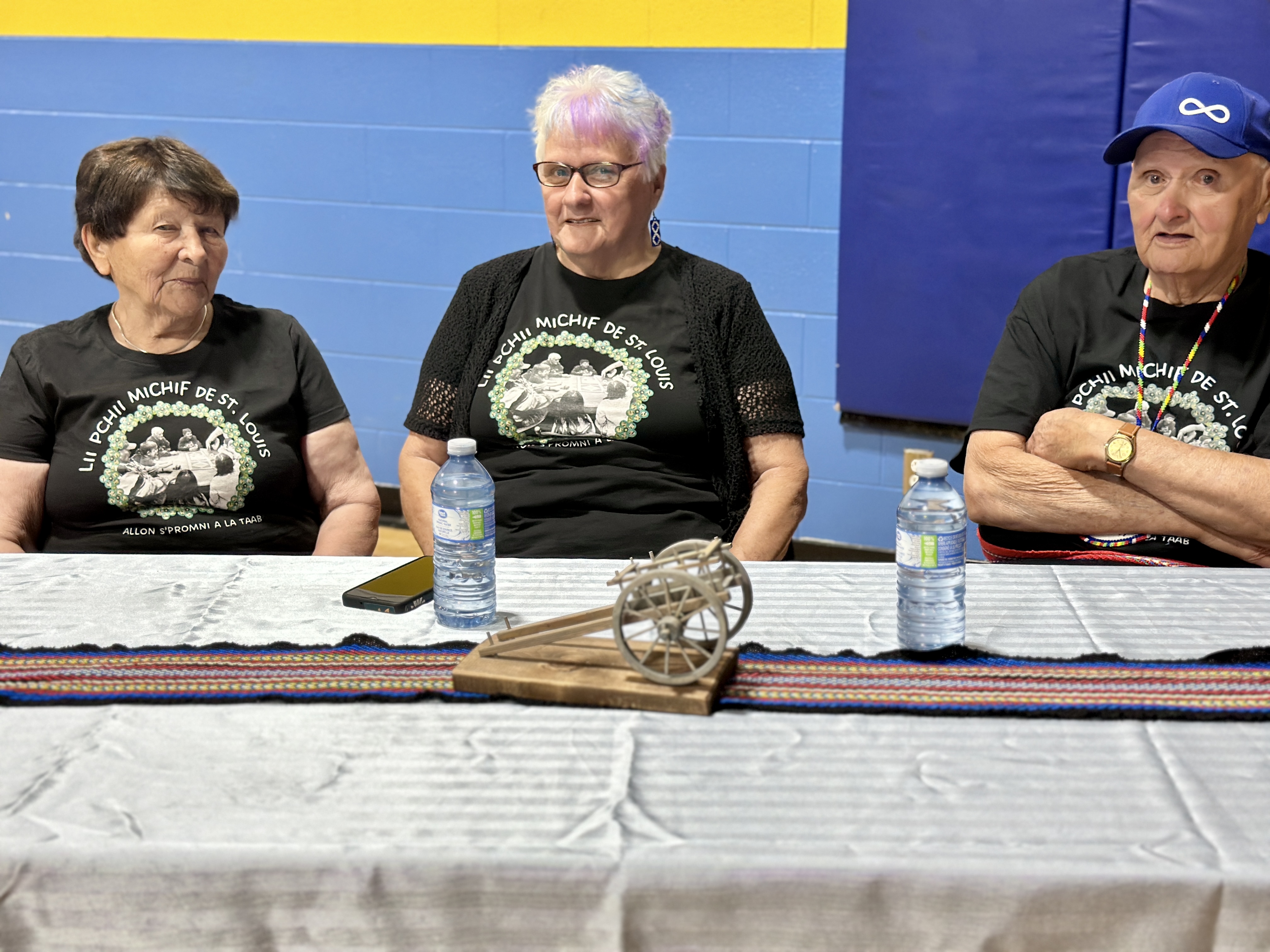
Angela considers the late Michif Matriarch, Sophie McDougall, as her guiding light. She has learned, visited, and laughed with Sophie for many years as they worked together to revitalize the Michif French language. This was an education in and of itself. It is a reciprocal form of learning and is often undervalued in Western-driven educational paradigms. “She was a friend, kin, and mentor to me for several years before she passed in April of 2023 at the age of 94. She guides us through this journey, and I hope to make her proud,” says Angela.
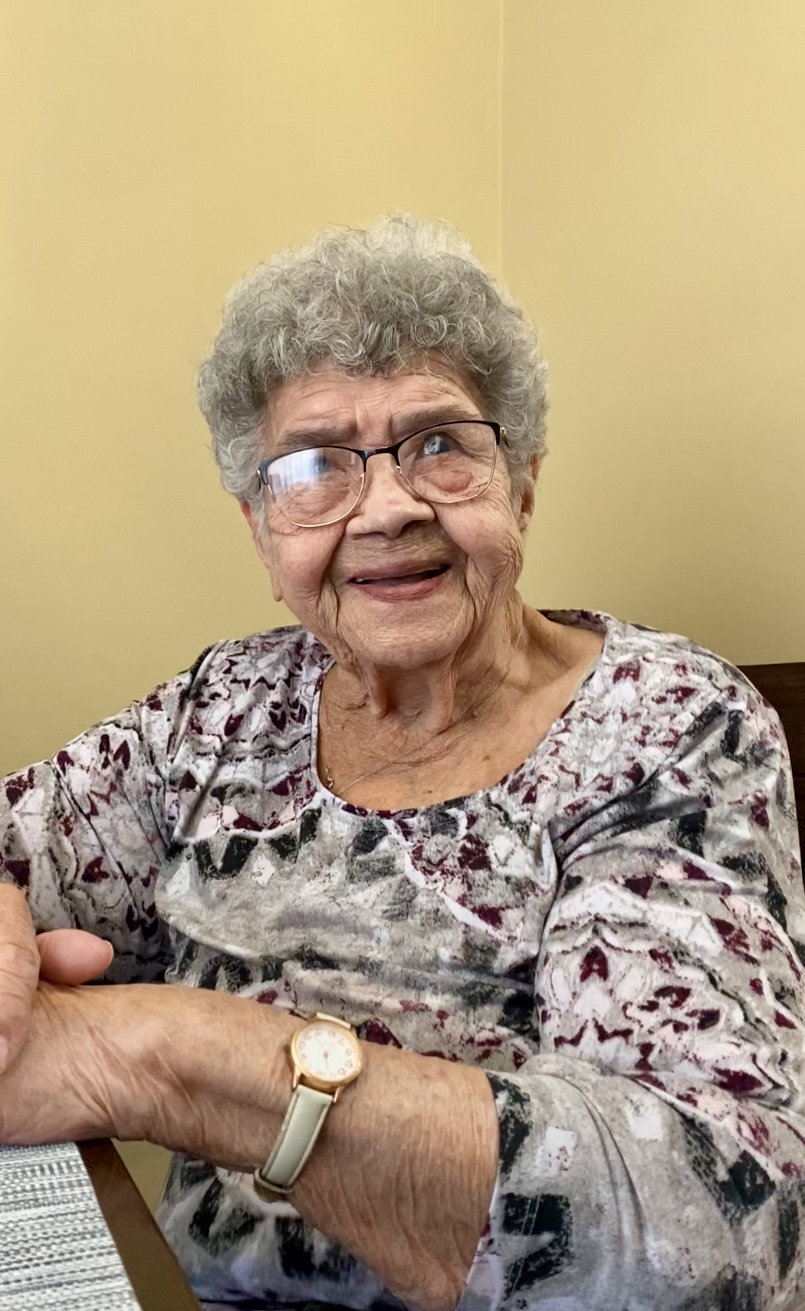
A genuine step toward reconciliation
“Opportunities in this program are like no other, the partnership with the U of R and GDI is a true and genuine step in reconciliation. We have lived in both ‘worlds’ as Michif people for hundreds of years, so this collaboration with the two institutions is a familiar setting.” – Angela Rancourt, PhD student, Faculty of Education, U of R
GDI and the U of R have a 40-plus-year history of educational excellence at the undergraduate level and a decade of experience partnering to offer graduate studies. The Indigenous Education Doctorate is created to empower and engage Métis and other Indigenous communities in scholarship, research, and practice that build capacity and systems of knowledge, honouring both traditional epistemologies and Western accreditation systems.
“Opportunities in this program are like no other, the partnership with the U of R and GDI is a true and genuine step in reconciliation. We have lived in both ‘worlds’ as Michif people for hundreds of years, so this collaboration with the two institutions is a familiar setting,” says Angela.
When Angela came in on the first day and saw that Dr. James Nahachewsky, Dean of the Faculty of Education at the U of R, a non-Indigenous male, would be one of her instructors, she felt skeptical. However, as she progressed through the course, Angela found that she could not speak highly enough about Dr. Nahachewsky and his genuine approach to building relationships with the students.
“He was so respectful during the sweat lodge ceremony and asked thoughtful questions. I could see the brotherhood bond between Dr. James Nahachewsky and Dr. Morris Cook (GDI). I left the course feeling optimistic about the relationships that can develop,” Angela reflects.
Check out the Indigenous Education Doctorate program offered by the Faculty of Education, University of Regina
Learn from each other, uplift each other
Speaking about her fellow classmates in this cohort, Angela noted that they have already built a foundation of trust and respect for each other’s unique gifts.
“This is a beautiful blend of people from diverse backgrounds. I look forward to seeing how we grow throughout the program, learning from and building on one another,” Angela adds. “As we continue to work and learn alongside each other, this cohort is enhancing our understanding, perspective, and practice of Indigenous pedagogies and epistemologies.”
Angela shares a memorable moment from her time in the program:
“On the final day of our first class as a cohort, I felt profoundly that this group, this program, this journey toward a Métis-focused doctorate, serves as a catalyst for meaningful change. I was filled with immense pride and optimism. Together, we will disrupt outdated systems, become changemakers, and forge a path to inspire future Métis scholars to continue the essential work ahead. I shared my enthusiasm and gratitude with the instructors, appreciating the course’s genuine and authentic approach. I truly believe this program is a significant step toward reconciliation and will benefit our students and communities for generations to come. I will always hold onto that feeling as the challenges ahead grow more intense and demanding in the coming years.”
At the end of the interview, Angela encourages anyone considering the next step in their educational journey to take time to reflect on the voices of their ancestors. What are they telling you? What are they calling you to do? Listen to their guidance and carry those voices with you in your work.